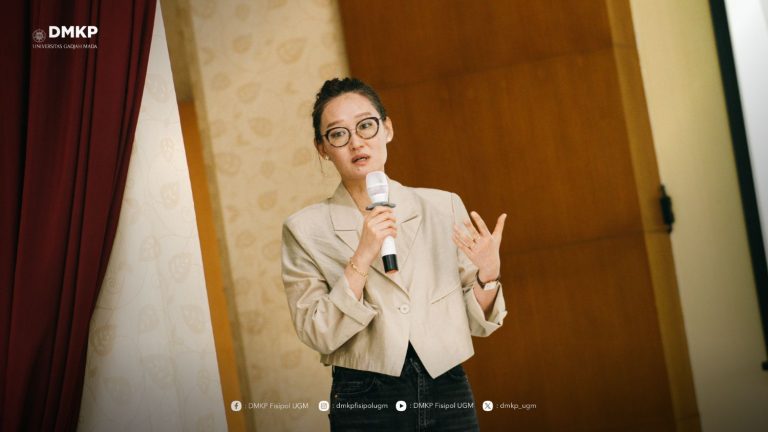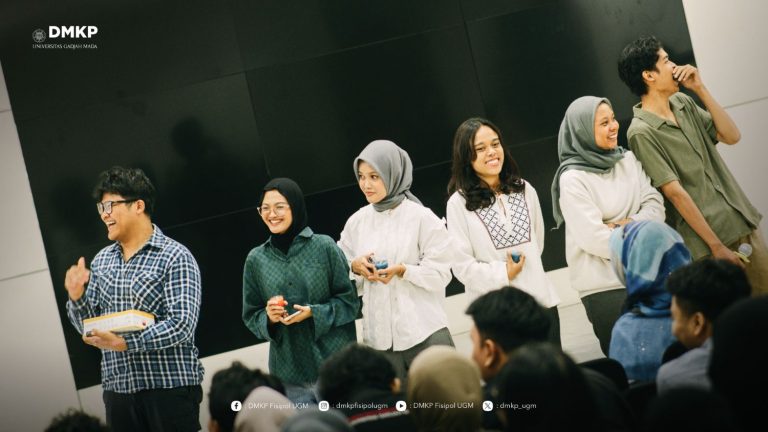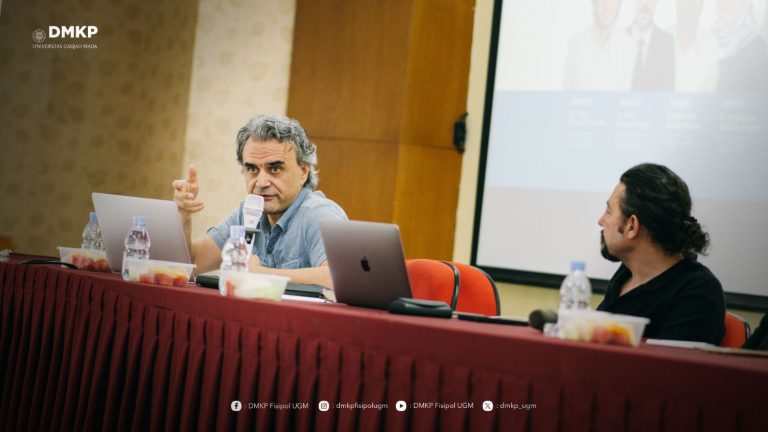Tuesday, July 30, 2024, the Department of Management and Public Policy at Gadjah Mada University (UGM) in collaboration with the Australian National University (ANU) held an internal workshop titled “Energy Transition in Public Policy”. The workshop was attended by several experts from both universities, including Prof. Deendarlianto from UGM’s Faculty of Engineering, Dr. Gabriel Lele from DMKP, Prof. Sara Bice, Prof. Shiro Armstrong, Prof. Janine O’Flynn, and Bec Colvin from ANU’s Crawford School of Public Policy.
Prof. Sara Bice opened the session by discussing energy transition in Australia, highlighting the importance of an integrated plan to shift Australia to renewable energy by 2050. She emphasized that energy transition is not only about creating new energy sources like solar and wind but also about national economic changes that reduce reliance on fossil fuels. Bice also presented her team’s research findings on community involvement in major infrastructure projects. Since 2018, surveys have shown that stakeholder and community pressure, regulatory and planning issues, and project funding are the most influential factors in project implementation. Conversely, technical issues and access to technical expertise are considered less impactful, indicating that technical aspects are well-managed, but community and stakeholder involvement needs improvement.
Bec Colvin highlighted the social complexities that arise in energy transition, particularly in regional areas of Australia. She stressed the importance of meaningful community participation, not just symbolic involvement. Colvin also discussed the challenges in balancing local benefits with issues like energy affordability. Local involvement often increases costs for the overall system, requiring careful navigation to address the distributive impacts of energy transition.
Prof. Deendarlianto provided an academic perspective on Indonesia’s energy transition program. He highlighted the national energy policy regulated by Government Regulation No. 79 of 2014. However, field implementation remains very slow, primarily due to centralized governance issues. He emphasized the importance of addressing governance problems by considering the role of bureaucracy in supporting energy transition. One ongoing project is the early retirement initiative for coal-based power plants. However, progress on this project is very slow because energy is still considered an optional matter by local governments, resulting in suboptimal attention to renewable energy development.
Dr. Gabriel Lele highlighted the differences in energy transition performance at local and national levels. Despite strong commitments, field performance varies greatly. Dr. Lele also discussed the importance of governance in energy transition. He differentiated between centralized and fragmented governance and how this affects the dynamics and progress of energy transition.
The workshop underscored the importance of community involvement and effective governance in supporting energy transition. The collaboration between UGM and ANU is expected to provide better insights and solutions to address the challenges of energy transition in both Indonesia and Australia. The speakers agreed that while the technical aspects of energy transition are well-understood, social and governance aspects require more attention to ensure a fair and sustainable energy transition.





